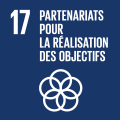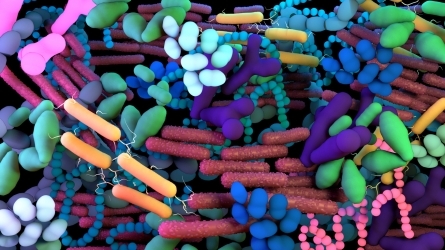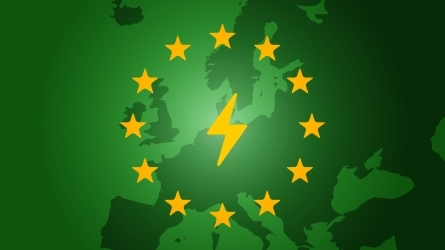
Pacto Verde: territorio de oportunidad para la PYME
Integración de la transición ecológica en la actividad de las pequeñas y medianas empresas de Euskadi y su impacto en la competitividad.
Description
El Pacto Verde Europeo y las políticas del Basque Green Deal son el reflejo del compromiso de Europa y Euskadi con la sostenibilidad, la biodiversidad y el cuidado del medio ambiente. El reto del cambio climático se está abordando impulsando la doble transición, verde y digital, que nos está haciendo avanzar hacia un modelo de economía más circular.
La transformación del modelo económico actual incide de manera directa en todo el tejido empresarial, siendo las Pequeñas y Medianas Empresas (PYMEs) las que más dificultades encuentran a la hora de adaptarse a los nuevos marcos regulatorios. Las PYMEs se encuentran frente al reto de transformar estos grandes desafíos en el motor de su competitividad, con nuevas oportunidades para su crecimiento.
Desde la adopción de prácticas de Economía Circular y de descarbonización, transversales a toda actividad económica hasta el desarrollo de nuevos modelos de negocio basados en las posibilidades de la sostenibilidad, las empresas más comunes en nuestro país: las PYMEs encontrarán en el Pacto Verde la ocasión de redefinirse, liderando la transformación ecológica del modelo económico y social.
Objectives
Dar a conocer los retos y oportunidades de la transición ecológica promovida por el Pacto Verde Europeo como factor clave para la competitividad de la economía vasca.
Poner en valor los proyectos y buenas prácticas empresariales vascas para aplicar las políticas europeas verdes en clave de oportunidad de negocio.
Dar a conocer los productos y servicios que el sector ambiental puede ofrecer al resto de sectores económicos para apoyar la transición ecológica.
Sensibilizar a la pyme en la importancia de integrar la transición ecológica en la estrategia de la compañía para mejorar su competitividad en un mercado europeo de productos sostenibles.
Activity directed to
- All public
- University student
- Students not from university
- Teachers
- Professionals
- Empresas, pymes, etc
In collaboration with
Program
25-09-2024
Registro
Presentation by the Director of the activity
- Olga Martín García | Aclima, Basque Environment Clúster - Directora General
“Panel de Expertos: Empresas socias de Aclima (10-15 minutos por ponencia). Charlas de empresas/profesionales/expertos que presentarán una experiencia original / proyecto innovador / buena práctica / metodología de trabajo que servirá como ejemplo para visibilizar el impacto que tiene la integración de la transición ecológica en la generación de nuevos modelos de negocio, tecnologías, etc., en definitiva, en una mejora de la competitividad de la pyme“
La RAP (Responsabilidad Ampliada del Productor) como oportunidad para reducir costes en la gestión de envases
- Begoña Vallejo | Cimas, Innovación y Medio Ambiente - Directora (Participation by zoom)
El calor residual en la industria
- Mikel González | Fivemasa SAU - Director Comercial
Competitividad en el mercado de automoción basada en la estrategia medioambiental
- Jatsu Intxaurbe | Hijos de Juan de Garay - Director de I+D+i
Caso práctico de éxito de economía circular – soluciones sostenibles para entornos de ocio
- Iñigo Isasti | Jolas - Director Comercial
Innovación Social y Ambiental - Nuevas Soluciones para la gestión del textil
- Zuriñe Fernández | Koopera - Coordinadora de Sostenibilidad
Caso de éxito en el desarrollo de negocios sostenibles en las PYMEs: Demoliciones Sostenibles. Materiales secundarios, digitalización e innovación en la valorización de residuos
- Erik Sandonis Martín | Lezama Demoliciones - Responsable de Oficina Técnica e I+D+i
Pausa café
Round table: “Debate sobre los retos y oportunidades de la integración de la transición ecológica en el modelo económico tal y como está impulsando el Pacto Verde Europeo. Integrantes de la mesa: Cuatro expertos en transición ecológica de diferentes ámbitos de la sociedad“
1. Institución Pública
- Juncal Ibeas Larrañaga | Ayuntamiento de Vitoria-Gasteiz - Jefa de servicio de Empresas e Industria
2. Ámbito del conocimiento
- Rikardo Minguez Gabiña | Director del Máster en Economía Circular: aplicación a la empresa
Empresa que integre la sostenibilidad ambiental en su estrategia
- Teresa Tejero | Ondoan - Directora Unidad de Medioambiente y PRL
Empresa del sector ambiental que esté aumentando su competitividad por el desarrollo de nuevos productos y servicios sostenibles
- Ainhoa González Lainez | Campezo - Asfaltia - Responsable de Estrategia Ambiental
Directors

Olga Martín García
ACLIMA, Basque Environment Cluster, Directora General
She holds a degree in Chemistry (University of the Basque Country) and an Executive MBA (University of Barcelona). She has extensive professional experience in companies, particularly in VIDRALA, where she has held various management positions. She has participated as a representative in important glass sector associations such as FEVE - European Federation of glass packaging and glass tableware makers and ANVEFI - National Association of Glass Packaging Manufacturers, and in glass consortiums in the field of innovation such as IPGR or ICG. Olga Martín is currently the General Manager of Aclima. Her commitment to the cluster and its Strategic Plan is to position the Basque environmental sector as a lever of competitiveness for the rest of the sectors. Aclima-Basque Environment Cluster is the reference point for the environmental sector in the Basque Country. It represents the private sector as well as the sphere of knowledge and the public sector.
Speakers

Zuriñe Fernández
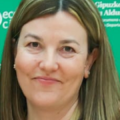
Ainhoa González Lainez
GRUPO CAMPEZO
Ingeniera Técnica Industrial, Máster en Gestión de Calidad y Medio Ambiente y Máster en Economía Circular. Más de 20 años de experiencia en Gestión Ambiental con enfoque de ciclo de vida, especializada en el sector de la Construcción, desarrollando proyectos de sostenibilidad empresarial de carácter ambiental. Responsable de Estrategia Ambiental en Grupo Campezo desde 2020, desarrollando proyectos relacionados con las nuevas tendencias ambientales de acuerdo al cambio de paradigma que se plantea como reto y oportunidad en materia de sostenibilidad y desarrollo sostenible.

Mikel González
Grado de ingenieria en Organización industrial, Máster en Gestión de Organización industrial, Máster en ingenieria del mantenimiento y master de dirección de ventas. Responsable de la dirección comercial de Fivemasa desde el año 2020, desarrollando proyectos relacionados con el control de emisiones atmosfericas.

Juncal Ibeas Larrañaga
Ayuntamiento Vitoria-Gasteiz
Graduated from the University of Salamanca and linked to Local Development since 1986, when she trained in this field at the Faculty of Industrial Organisation. Over the years, she has held different positions always linked to Local Development. She is currently Head of the Business/Industry Service of the Department of Economic Promotion of the City Council of Vitoria-Gasteiz, and from this service she promotes the Municipal Industry Plan 2021-24, a plan in which one of the strategic objectives is defined as "To advance in the transition of industry towards a Circular Economy model".

Jatsu Intxaurbe
Ingeniero Industrial en la Escuela de Ingenieros de Bilbao y MBA por la Euskal Herriko Unibertsitatea - Universidad del País Vasco. En el ámbito de la investigación se inició en TECNALIA en el Diseño Mecánico y más adelante se especializó en MIK en Gestión de la Innovación. En la actualidad progresa su doctorado en Dirección Empresarial, Conocimiento e Innovación - Facultad de Economía y Empresa (Sarriko) – relacionado con Industria 4.0 y Sostenibilidad. La mayor parte de su actividad profesional está ligada al Desarrollo Corporativo en base a Productos, Negocios y Servicios en entornos industriales relacionados con la automoción (Tier1). Los últimos años en HJ GARAY, anteriormente en el entramado Cooperativo. A su vez cofundador de ERROTA, actividad público – privada orientada al Desarrollo Territorial.

Iñigo Isasti
Director de proyecto JOLAS. Ingeniero técnico industrial (EHU/UPV). Es responsable de desarrollo de productos y proyectos sostenibles de JOLAS basados en la economía circular y Ecodiseño. Atesora más de 30 años de experiencia en el sector de parques infantiles y mobiliario urbano. Ha sido director de exportación durante 7 años enfocado en el mercado LATAM. Fue responsable de implantación de sistemas de calidad ISO14006/9001/14001 y certificaciones de producto EN1176 de parques infantiles.

Olga Martín García
ACLIMA, Basque Environment Cluster, Directora General
She holds a degree in Chemistry (University of the Basque Country) and an Executive MBA (University of Barcelona). She has extensive professional experience in companies, particularly in VIDRALA, where she has held various management positions. She has participated as a representative in important glass sector associations such as FEVE - European Federation of glass packaging and glass tableware makers and ANVEFI - National Association of Glass Packaging Manufacturers, and in glass consortiums in the field of innovation such as IPGR or ICG. Olga Martín is currently the General Manager of Aclima. Her commitment to the cluster and its Strategic Plan is to position the Basque environmental sector as a lever of competitiveness for the rest of the sectors. Aclima-Basque Environment Cluster is the reference point for the environmental sector in the Basque Country. It represents the private sector as well as the sphere of knowledge and the public sector.

Rikardo Minguez Gabiña
University of the Basque Country (UPV/EHU)
Industrial Engineer specialized in Mechanical engineering (1995) by the Faculty of Engineering in Bilbao. He works at the Department of Graphic Design and Engineering Projects since 1998. He was recognized as Full Professor since 2019. Head of the Department of Graphic Design and Engineering Projects since 2016. Chair of the board of studies of the Master's Degree 'Circular Economy: Business Application' of the University of the Basque Country. He joined Laval University in Québec in 2005 as a visiting scientist. He works in the Product Design Laboratory since its creation in 2005, and in the Life Cycle Thinking Group. His current research focuses on Product Life Cycle Assessment, Ecodesign and Circular Economy.

Teresa Tejero
Directora de la Unidad de Medioambiente y PRL - ONDOAN, S.Coop. Teresa Tejero es la Directora de la Unidad de Negocio de Medio Ambiente y Prevención de Riesgos laborales de la empresa ONDOAN, S.COOP. Asimismo, es Directora Técnica de la Entidad de Inspección Ambiental de Ondoan acreditada por ENAC para la investigación de suelos contaminados y aguas subterráneas asociadas. Ingeniera Industrial especialidad Química y del Medio Ambiente (ETSII Bilbao) y Executive MBA, Master en Dirección y gestión de Empresas (UPV, Sarriko) Ha desarrollado toda su carrera profesional en el sector de consultoría e ingeniería medioambiental apoyando a las empresas a instituciones en la incorporacion de la variable ambiental en sus negocios.

Begoña Vallejo
CIMAS, INNOVACIÓN Y MEDIO AMBIENTE Ingeniero Superior Industrial, especialidad en Técnicas Energéticas (1994) por la Escuela de Ingeniería de Bilbao (Universidad del País Vasco). Actualmente Socia y Directora de CIMAS. Desde el año 2003, trabajando en CIMAS como responsable de la ejecución y supervisión de numerosos proyectos en el ámbito de la consultoría estratégica y medioambiental orientada al sector industrial. Con anterioridad (1994-2003) formó parte del equipo de consultoría de sostenibilidad de PwC (Bilbao y Madrid). Los últimos años participando activamente en proyectos de adaptación de la Directiva de Emisión Industriales e implantación de Mejores Técnicas Disponibles, así como en la puesta en marcha de proyectos de colaboración público-privada (Acuerdos Voluntarios).

Erik Sandonis Martín
LEZAMA DEMOLICIONES SLU
Ingeniero Técnico de Obras Públicas con especialidad en construcciones civiles, Ingeniero de Caminos, Canales y Puertos, máster en PRL y cursando doctorado en Ingeniería mecánica, con más de 10 años de experiencia en el sector de la demolición. Con varios años de experiencia en campo dirigiendo demoliciones, desde 2019 lidera el departamento de Oficina Técnica e I+D+i de Lezama Demoliciones. Desde el perfil y la especialidad en el cálculo estructural, altas capacidades en la elaboración y dirección de procedimientos técnicos y proyectos de demolición. Especialización en economía circular en la demolición, la gestión ambiental y la integración de la sostenibilidad en el proceso de demolición. Al margen de la actividad puramente de demolición, es el responsable de proyectos de I+D+i de Lezama a nivel estatal y europeo (Digideco, Recyclebim, ICEBERG,), coordinando los distintos equipos de trabajo. Ponente en diversos foros y congresos, y con publicaciones en revistas técnicas, en los ámbitos de la demolición técnica, la valorización de residuos y la economía circular. Forma parte de la Asociación Español de Demolición (AEDED), la European Demolition Asociation (EDA), y el European Decontamination (EDI).
Registration fees
| Face-to-face | Until 25-09-2024 |
|---|---|
| 25,00 EUR | |
| 0 EUR | |
| 0 EUR | |
| 0 EUR | |
| 0 EUR |
| Live online | Until 25-09-2024 |
|---|---|
| 25,00 EUR | |
| 0 EUR | |
| 0 EUR | |
| 0 EUR | |
| 0 EUR |
Venue
Bizkaia Aretoa-UPV/EHU
Avenida Abandoibarra, 3. 48009- Bilbao
Bizkaia
Bizkaia Aretoa-UPV/EHU
Avenida Abandoibarra, 3. 48009- Bilbao
Bizkaia
Sustainable development goals
Agenda 2030 is the new international development agenda approved in September 2015 by the United Nations. This agenda aims to be an instrument to favour sustainable human development all over the planet, and its main pillars are the eradication of poverty, a reduction in equality and vulnerability and fostering sustainability. It is a unique opportunity to transform the world up to 2030 and guarantee human rights for all.

3 - Good health and well-being
Guarantee a healthy life and foster the well-being of all people of all ages. Key issues: universal healthcare coverage, sexual and reproductive health, reduction in the number of road accident casualties, pollution and chemical products, reduction in maternal and neonatal mortality, the end of epidemics such as AIDS, combating hepatitis and other water-borne diseases, drug and alcohol prevention, control of tobacco.
More information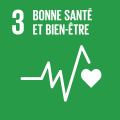
6 - Clean water and sanitation
Guaranteeing the availability and sustainable management of water and sanitation for everyone. Key issues: universal and fair access at an affordable price, access to sanitation and hygiene services, water quality, efficient use of water resources, end-to-end management, protection of water ecosystems, reduction of pollution, elimination of waste discharges, wastewater treatment.
More information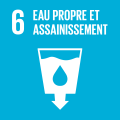
8 - Decent work and economic growth
Foster sustained, inclusive and sustainable economic growth, full and productive employment and decent work for everyone. Key issues: decent work, full and productive employment, entrepreneurship, fostering micro-companies and SMEs, employment rights, safe working environments, youth employment, equal opportunities and pay, strengthening of financial institutions, and breaking the link between economic growth and the degradation of the environment.
More information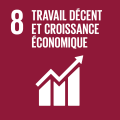
9 - Industry, innovation and infrastructure
Build resilient infrastructures, promote inclusive and sustainable industrialisation and foster innovation. Key issues: reliable, sustainable, resilient and quality infrastructures, inclusive and sustainable industrialisation, modernisation, clean and environmentally rational industrial technologies and processes, scientific research and improvement of technological capabilities, universal access to ICTs.
More information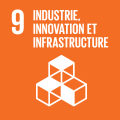
11 - Sustainable cities and communities
Make cities and other human settlements inclusive, safe, resilient and sustainable. Key issues: access to suitable housing and basic services that are secure and affordable, suitable and sustainable transport systems, inclusive urban planning, participative planning and management, protection of cultural and natural heritage, air-quality, green zones, and connections between urban, peri-urban and rural areas.
More information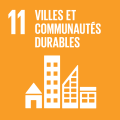
12 - Responsible consumption and production
Guarantee sustainable modalities of consumption and production. Key issues: sustainable management and efficient use of natural resources, reduction of chemical particles released to the atmosphere, water and soils, reduction of waste products, recycling, reuse and reduction, sustainable practices, sustainable public procurement, sustainable lifestyles, rationalisation of inefficient subsidies for fossil fuels.
More information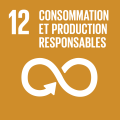
13 - Climate action
Adopt urgent measures to combat climate change and its effects. Key issues: mitigation, resilience and capacity for adaptation, planning, national strategies and plans, education and raising awareness, reduction of effects and early warning systems, compliance with the Framework Convention of the United Nations on Climate Change.
More information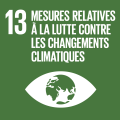
14 - Life below water
Conserve and sustainably use the oceans, seas and marine resources for sustainable development. Key issues: reduction of marine pollution and acidification of the oceans, protection of marine ecosystems, re-establishment of the health and productivity of the oceans, conservation de coastal and marine areas, elimination of over-fishing and poaching, support for traditional fishing, increased scientific knowledge.
More information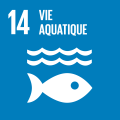
15 - Life on land
Protect, establish and foster the sustainable use of terrestrial ecosystems, manage forests sustainably, fight desertification, hold back and reverse the degradation of land and delay the loss of biodiversity. Key issues: the fight against desertification, reforestation, conservation, the regeneration and sustainable use of terrestrial ecosystems, natural habitats, biodiversity, invasive exotic species, integration of the values of ecosystems into planning, poaching.
More information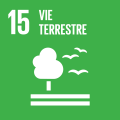
17 - Partnerships for the goals
Strengthen the means of implementation and revitalise the World Alliance for Sustainable Development. Key issues: mobilisation of resources, 0.7% of GDP for official overseas development aid, finances, cooperation in technology and innovation, ecologically rational technologies, skills building, universal and multilateral trade system, coherence on the legislative and institutional levels, availability of data, supervision, indicators and accountability.
More information